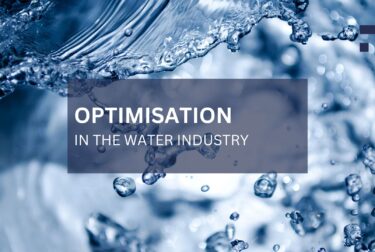Optimisation Strategies for Cost Reduction, Efficiency Enhancement, and Environmental Impact

In today’s rapidly evolving industrial landscape, where every decision carries weight, Optimisation emerges as a beacon of efficiency, cost reduction, and environmental responsibility. Whether you operate within the water industry or any other sector, the pursuit of Optimisation can yield significant benefits. In a recent presentation by Andy O’Rourke from BGEN, the principles and strategies of Optimisation were elucidated, demonstrating not only the theoretical foundations but also practical steps that any organisation can undertake to transform its operations for the better.
Optimisation, as Andy defines it, is about making things better. It’s a journey that involves understanding existing inefficiencies, defining measurable improvements, implementing changes, and continuously monitoring outcomes. At its core, Optimisation aims to enhance processes, controls, and efficiency metrics, all whilst ensuring tangible, quantifiable results.
The three-step approach outlined in the presentation simplifies what might seem like a complex undertaking. By breaking it down into manageable phases, organisations can navigate the Optimisation journey with clarity and purpose.
Step 1: Process Evaluation
The first step involves a critical examination of the process itself. What should the process be doing? Understanding the core objectives is essential for identifying areas of improvement. By assessing process demands and performance, organisations gain valuable insights into where Optimisation efforts should be focused.
Step 2: Control Assessment
With a clear understanding of process dynamics, attention turns to control mechanisms. How well are the demands being met? Control systems play a pivotal role in optimizing process performance. Fine-tuning control parameters can lead to more efficient operations and better resource utilisation.
Step 3: Efficiency Enhancement
While efficiency often takes centre stage, it’s the culmination of process Optimisation and control refinement. Rather than focusing solely on equipment efficiency, organisations should prioritise optimizing processes and controls. By doing so, they can achieve sustainable improvements that transcend individual components.
Andy emphasises that the biggest Optimisation opportunities lie in process and control refinement. While equipment upgrades can yield benefits, the true potential for efficiency gains lies in optimising operational strategies and control algorithms. This approach not only reduces maintenance costs but also enhances overall system resilience and performance.
A real-life example presented during the session illustrates the transformative power of Optimisation. By re-evaluating process demands and refining control strategies, a pumping station supplying a reservoir achieved significant efficiency improvements. The shift from a rigid control philosophy to a more flexible approach led to smoother operations and reduced energy consumption.
Moreover, Optimisation isn’t just about financial gains; it’s also about environmental responsibility. By reducing energy consumption, organisations can minimise their carbon footprint and contribute to a more sustainable future. Every Optimisation initiative, no matter how small, carries the potential to make a meaningful impact on the environment.
Optimisation isn’t just a buzzword; it’s a strategic imperative for organisations looking to thrive in today’s competitive landscape. By following a structured approach that prioritises process refinement and control optimisation, businesses can unlock substantial cost savings, improve operational efficiency, and reduce their environmental footprint. As Andy aptly puts it, Optimisation isn’t merely about making things better; it’s about making them better in a way that’s measurable, sustainable, and impactful.
